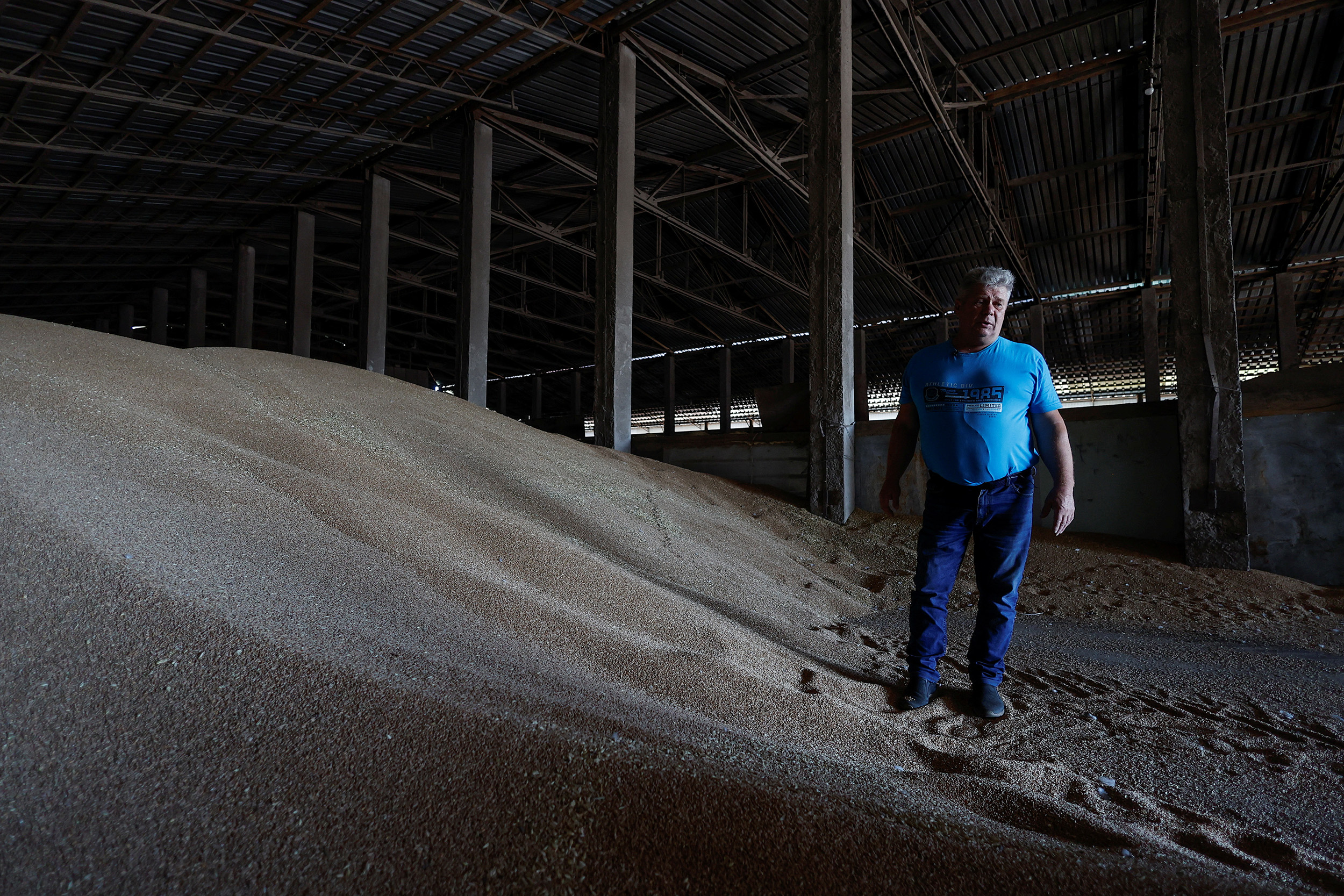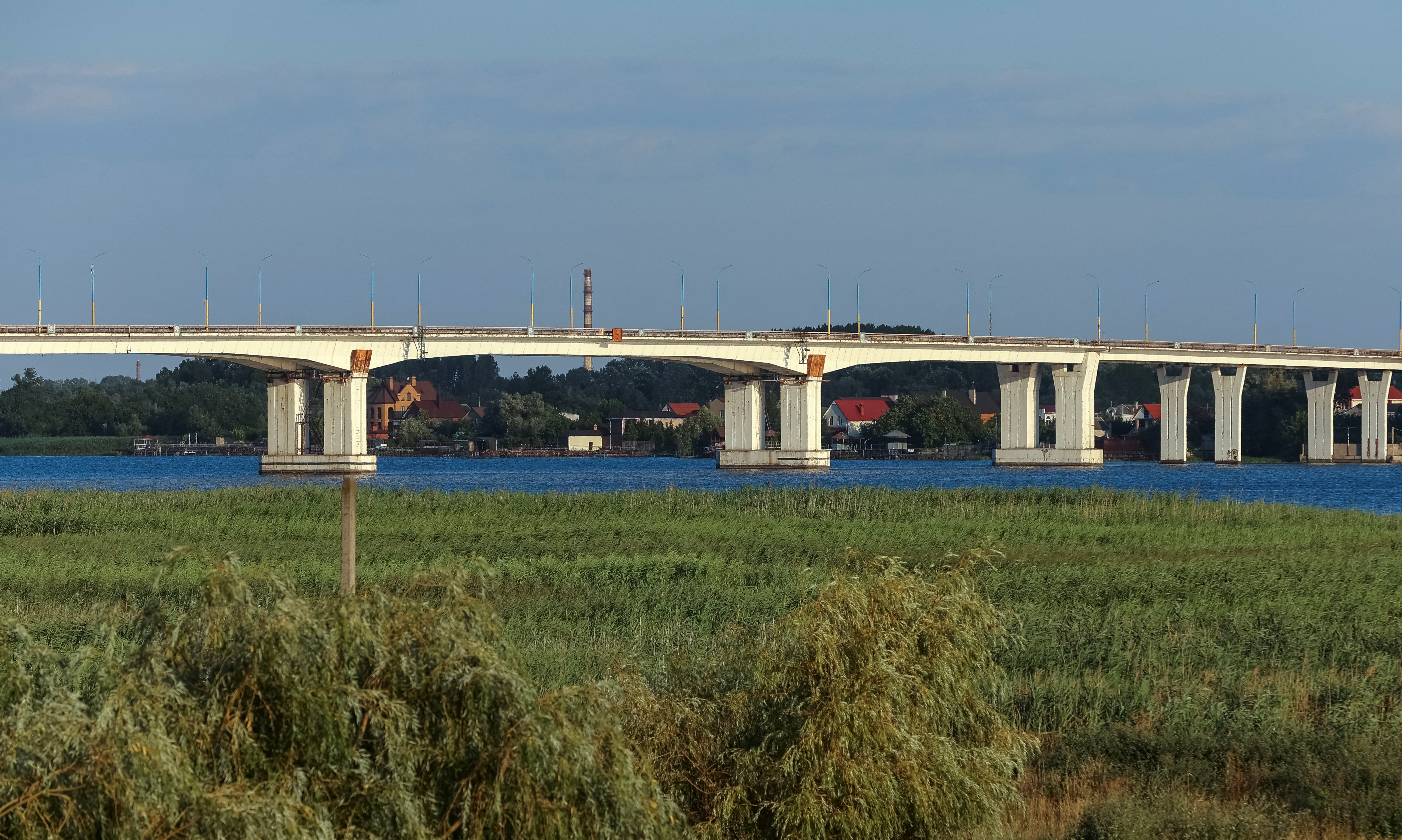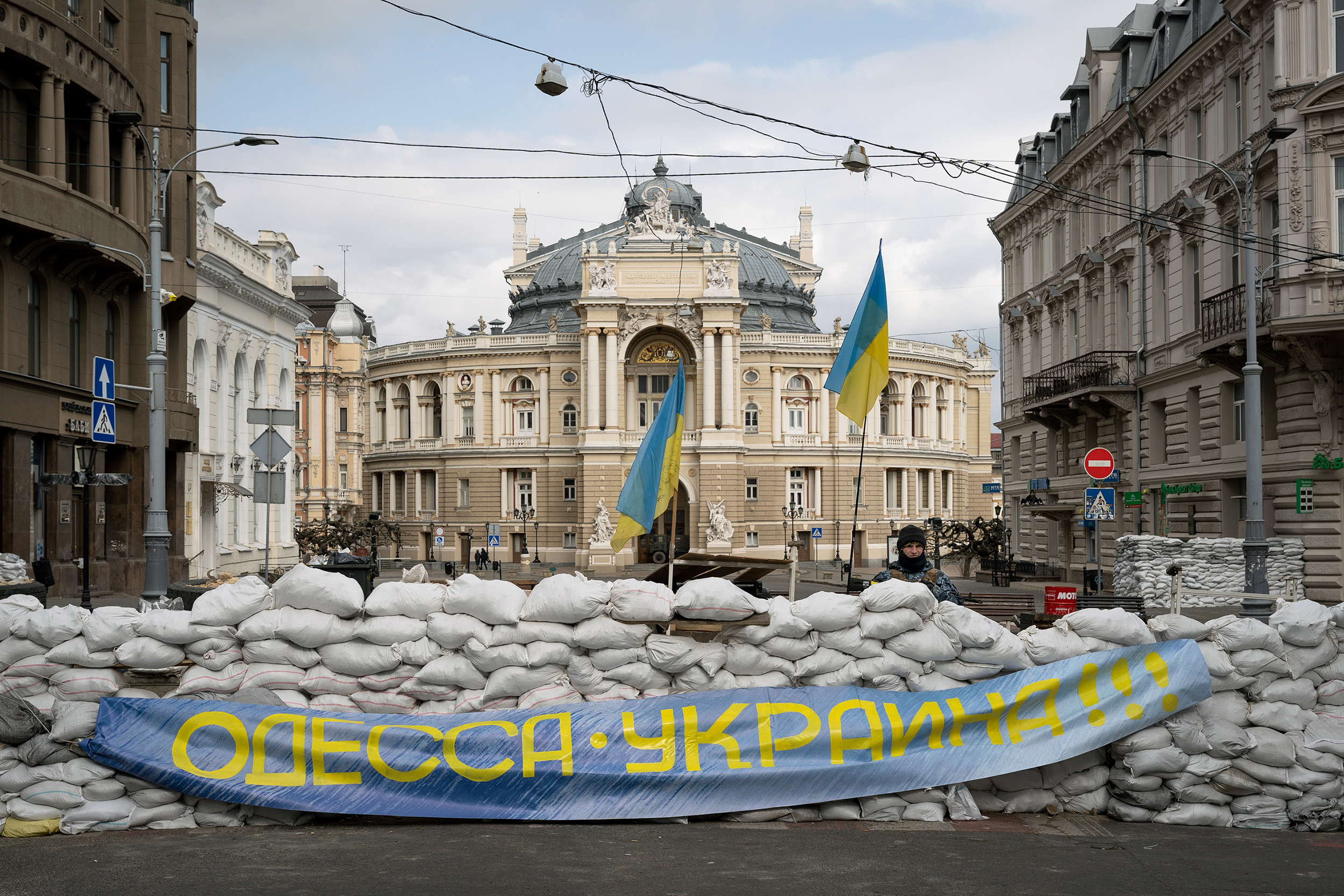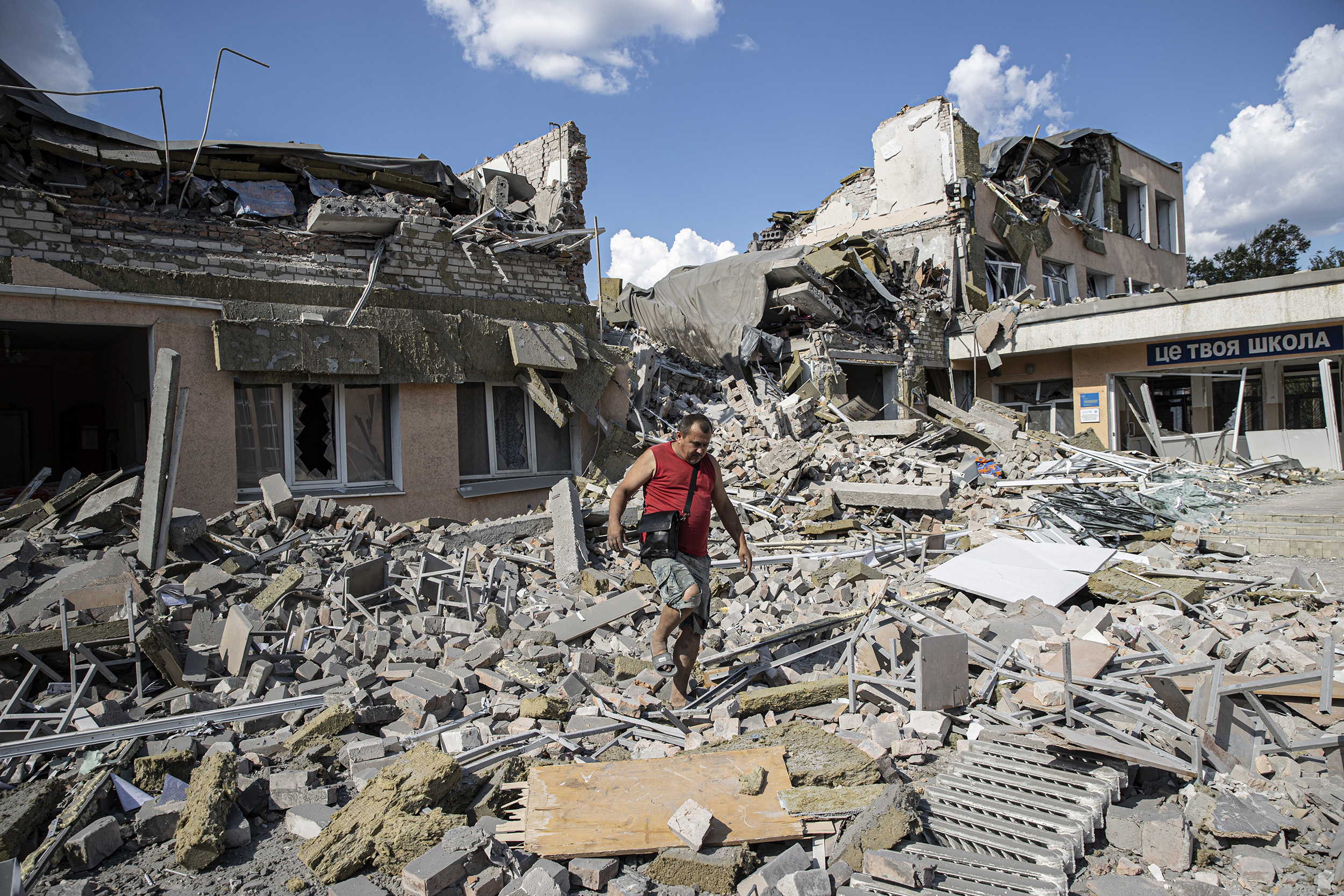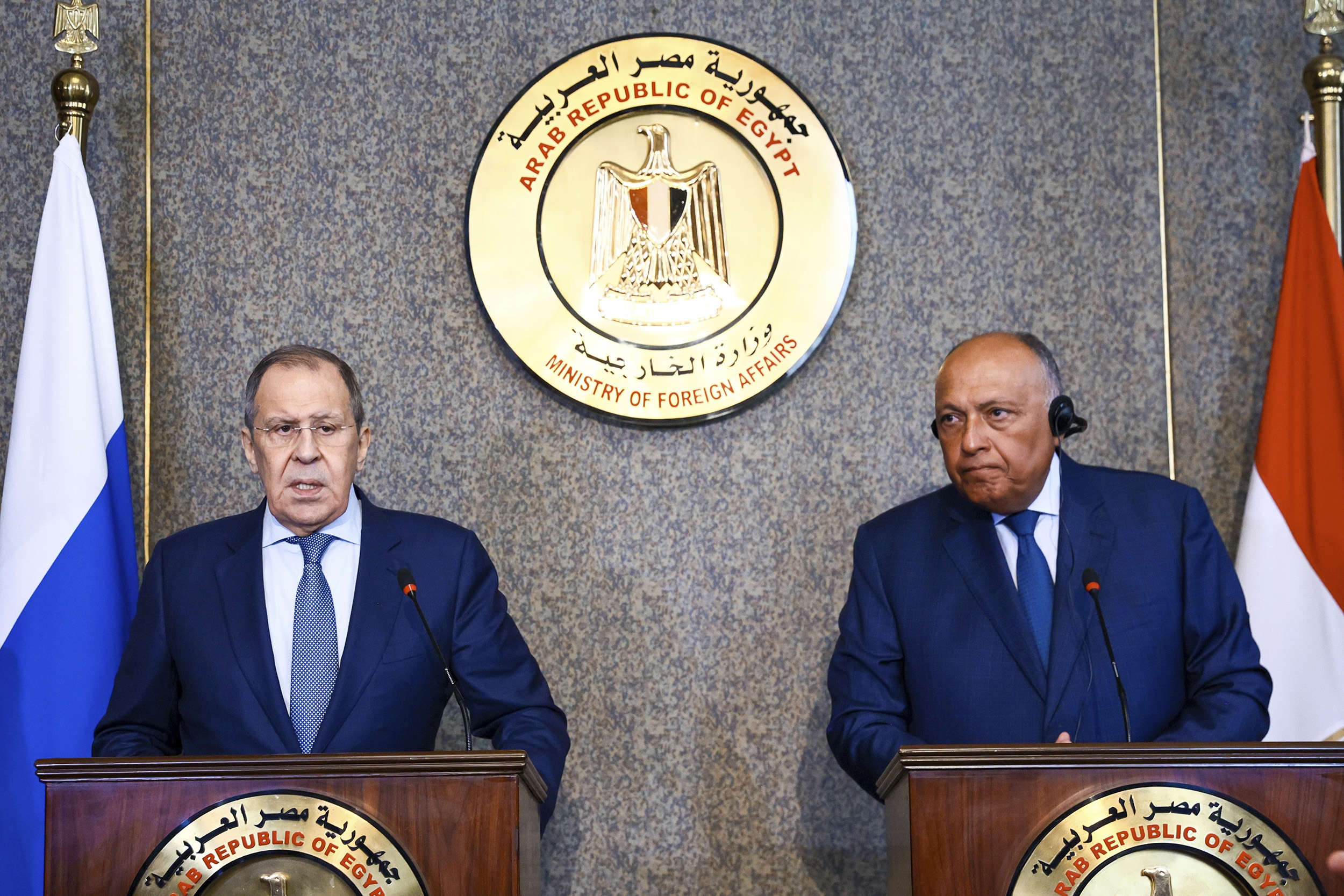Russian Foreign Minister Sergei Lavrov says Moscow’s strike on the port of Odesa did not break any of the commitments it agreed to in a deal to guarantee the export of Ukrainian grain.
“If we talk about the episode that took place in Odesa, there is nothing in the obligations that Russia has taken on — including within the framework of the agreements signed on July 22 in Istanbul — which would prohibit us from continuing the special military operation, destroying military infrastructure and other military targets,” Lavrov told journalists during a press conference in Congo.
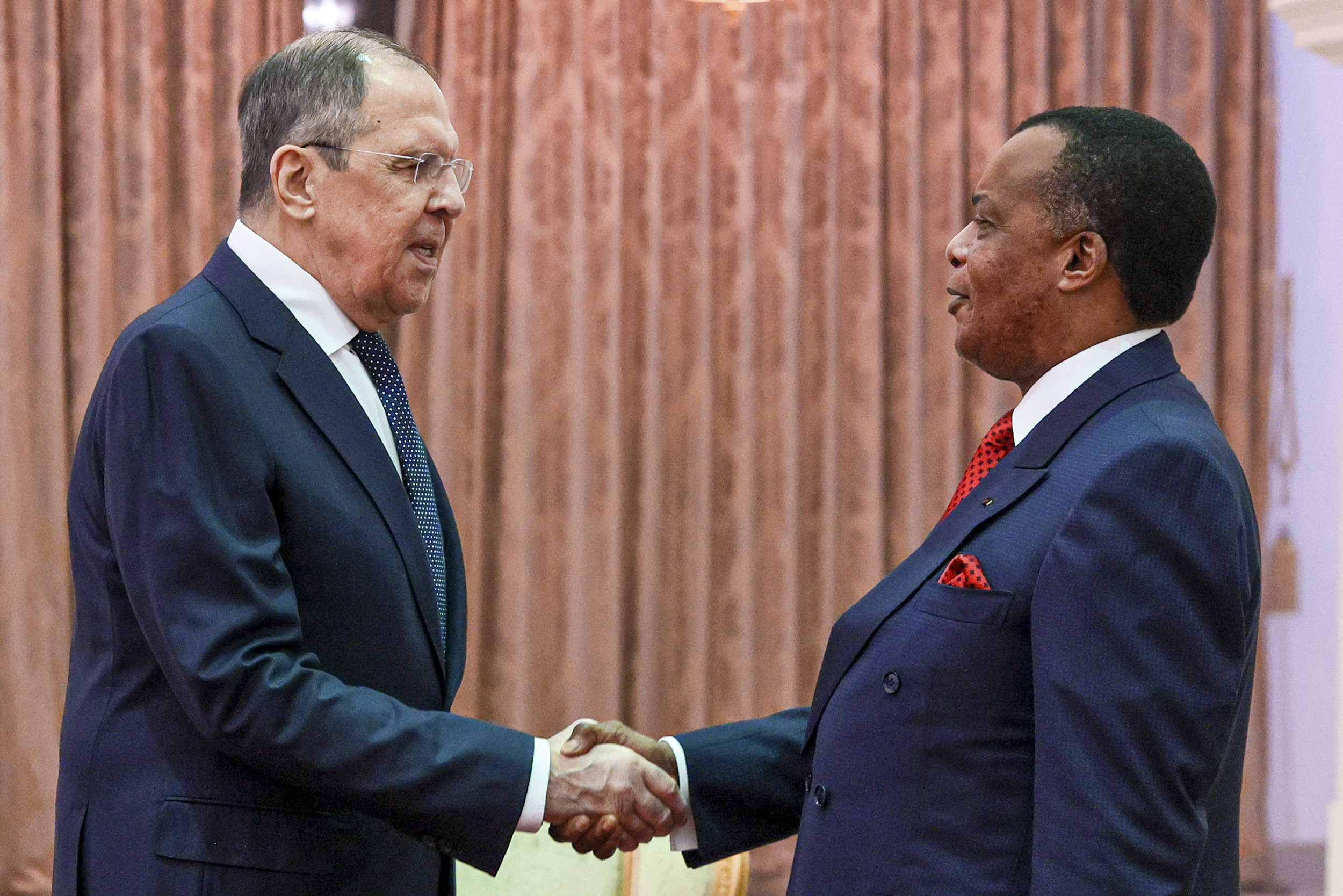
Lavrov went on to repeat Moscow’s claims it only struck military targets.
“As for the targets of those high-precision strikes, they are located in a separate part of the Odesa port, in the so-called military part of the Odesa port,” he said. “These targets were the combat boat of the naval forces of Ukraine and the ammunition depot, where the Harpoon anti-ship missiles were recently delivered. They were brought there to pose a threat to the Russian Black Sea Fleet.”
“The experts also confirmed that the grain terminal of the Odesa port is located at a considerable distance from the military unit, there are no obstacles for grain to be delivered to customers in accordance with the agreements signed in Istanbul, we did not create them,” he added.
The Russian foreign minister is visiting several African countries to try and drum up support for Moscow’s invasion of Ukraine. African nations have been the worst affected by the restrictions on Ukrainian grain exports.
